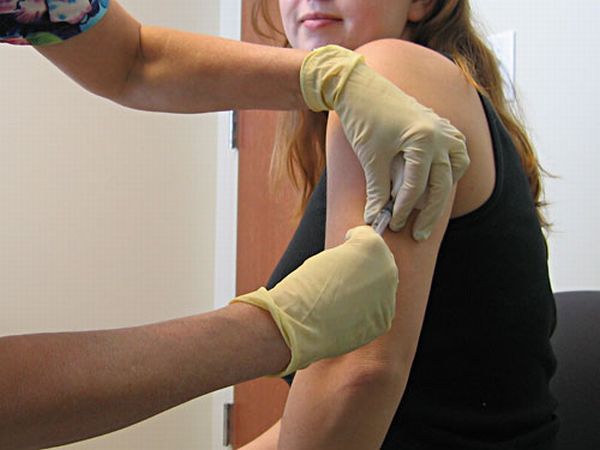
Typhoid is a very common disease which is caused by contaminated food or water, especially in the developing world. The disease is transmitted by human from one to other. Salmonella Typhi is the name of bacterium behind this disease. This bacterium grows maximum at 37 degree Celsius which is also human body temperature. These bacteria grow more in the areas with poor sanitation facilities. This disease is very prevalent in places like Mexico, South America, Indian subcontinent, South East Asia etc. This disease spreads irrespective of a person’s age. But it has also been seen that small school-going children are more prone to this disease than others. It is mainly because of their weak immune system. Read on to learn more about typhoid.
Causes
It has been seen that this disease spreads only because of human factors. Humans are the only natural transmitter of this disease. Some of the common causes of this disease may include-
- Oral transmission through eatables handled by individuals having this disease
- Hand-to-mouth transmission because of poor hygiene
- Oral transmission because of contaminated water
This disease spreads only because of human carelessness. The spread of this disease is more in the developing world rather than the developed world due to poor sanitation and other medical healthcare issues. Some people get less infected by this disease in comparison to others. Such people are known as slow carriers of the disease. They remain undetected and so spread this disease more than others.
Symptoms
Some of the common symptoms of this disease are-
- Severe headache
- Poor appetite
- Abdominal pain
- Generalized aches and pains
- High fever that may go beyond 104 degrees Fahrenheit
- Internal bleeding (intestinal)
- Lethargy
There may be some other symptoms too. But they are very rare and depend on the place and the patient.
Diagnosis
The diagnosis part of this disease is not as easy as it may seem. It is done by culture test. It may be of-
- Blood
- Stool or
- Bone marrow
The test performed most often to detect this disease is known as Widal Test. This test is mostly very time-consuming and in most of the cases the time till it confirms the disease, the disease becomes so severe that it gets very difficult to control it with antibiotics. To avoid this, most doctors in the world start giving the antibodies from the initial stage itself.
Treatment
In the early 1960s, Oral Re hydration Therapy used to be a good way to control the cases of diarrhea. But with more inventions in the medical world, more and more medicines have been introduced. Some of the common are:
- Fluoroquinolone such as ciprofloxacin- It is for the cases where the disease is not so common. Cefixime is a suitable oral alternative. But now in Multi Drug Resistant Typhoid ( MDR Typhoid) this is not prescribed. Antibiotics, such as ampicillin, chloramphenicol, trimethoprim-sulfamethoxazole, Amoxicillin and ciprofloxacin may be used. But all have common limitation that these can’t be given in case of MDR Typhoid.
- These days, resistance to common antibodies is very common especially in the developing world like Indian subcontinent and South East Asia where this disease is still very fatal. In such cases, doctors prefer giving ceftriaxone and Azithromycin. These proved to be better in checking this this fatal disease.
This way, with the innovations in medical science new and better curing medicines are available. Though the fatal rate of this disease has reduced a lot but still it is a big reason to worry because if remained undetected it may become fatal.
Prevention
Well, prevention is always better than cure. Timely action in a right direction will not only help to check this disease but will also save other people who may get infected with this bacterium. Poor sanitation is one of the very common causes of this disease. So, if you want to prevent this disease, you should
- Always follow strict hygiene code
- Drink clean water
- Wash your hands before eating or drinking
By following such measures, you may control this disease. There are also various vaccines available for preventing typhoid. They also prevent the spreading of this disease. If you are going to such place where this disease is at its peak, then you should consult about this with your doctor.
Some of the very common vaccines used these days are mainly of two types. These are recommended by the WHO (World Health Organisation). These may be like-
- Oral Ty21 a vaccine
- Injectable Typhoid polysaccharide vaccine
Some vaccines may result in pains and inflammation on the areas where you have got them injected. This may be one of the side effects of these vaccines. So, it is always recommended that you must consult your doctor before going for any such vaccine.
Your doctor will also guide you a proper diet plan that you can follow to avoid this disease. As this disease is related with digestive system, so doctors will suggest you to take only light food, preferably liquids only. This is recommended when they think you are infected with this disease.
Frequently Asked Questions
1. Is typhoid a fatal disease?
Typhoid is a serious disease but is not a fatal one. It becomes fatal only when it remains undetected. So, whenever you find two or more of the above symptoms in yourself, consult your doctor immediately.
2. Am I 100 percent safe from the disease once I got vaccinated?
Vaccination is a very good option to prevent this disease and you all must go for it. But once vaccinated, it doesn’t mean that you won’t get the disease ever. Though in majority of cases, you are safe, but then also you should follow a strict hygiene code and must avoid places of poor sanitation. Timely detection will save you from this disease.




